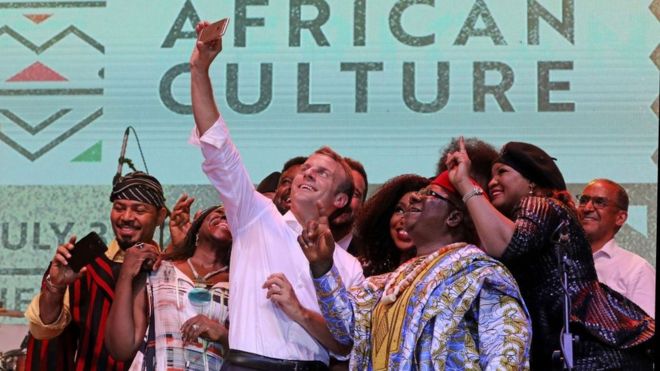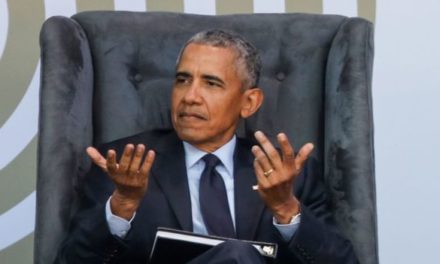In our series of letters from Africa, Nigerian writer and novelist Adaobi Tricia Nwaubani looks at the backlash over a statement from France’s president in which he was accused of diminishing the effects of colonialism.
Emmanuel Macron’s remarks have provided Africans with yet another one of those attack sessions that we so thoroughly enjoy – an opportunity to reprimand our former colonial rulers who once paraded themselves as superior to us.
“60% percent of the Nigerian population is aged under 25,” the French leader tweeted during his trip to Nigeria.
“That’s 60% of the population which, like me, did not witness colonisation. We are the new generation. We are going to dispel prejudice by rebuilding a new future through culture.”
The criticisms of Mr Macron’s remark were swift and plenty. They varied from four-letter words to accusations of encouraging Africa’s youth to sweep the crimes of colonialism under the carpet.
Many responders listed the impact of colonialism in Africa, particularly on the countries’ economies, side-effects of which are currently suffered by those who were not born at the time of the original atrocities.
So how has colonialism affected me?
I was born almost 20 years after Britain officially handed over my country, Nigeria, to its people.
The one enduring effect that I find most bothersome is the way our former colonial rulers still loom large in our peoples’ minds, shaping the greater part of our self-image.
What “the white people” think and speak of us continues to mean more to many Africans than what we believe about ourselves.






Facebook Comments